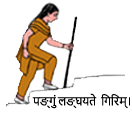- Try to understand the prescription correctly. Then, ask the doctor again if any doubts.
- Instructions about dosing and other details can be obtained from pharmacists too. Get approval from your doctor for the same drug manufactured by another company. Cheaper generic drugs are also available now. Read the brochure supplied with each medication.
- Inform your doctor about your liver, kidneys, heart ailments, and other conditions such as stomach ulcer, asthma, diabetes, high blood pressure, allergy, and alcohol addiction.
- Inform your doctor about your plans to conceive or conception treatment. Information about pregnancy and breastfeeding should also be provided.
- Drugs must be taken as prescribed. Timings should not be missed. If a dose is missed, then a double dose is not advisable.
- A tablet without a score-line should not be broken into pieces. Likewise, capsules, coated pills, and controlled-release tablets (effective after a particular time) should not be broken or chewed.
- Most of the drugs are to be taken after having food. Some do not have this specification. Some are better taken on an empty stomach. Do ask your doctor in this regard.
- A chewable tablet should not be swallowed. Instead, it should be chewed totally.
- Contact your doctor if you feel that the drug is not suitable and causing trouble. It may be alright to stop the medication temporarily.
- Maintain a record of drug allergies and inform about them every time you visit a doctor.
- Your doctor should also be informed about ongoing Ayurveda, Homoeopathy, or any other treatment. One should also check if simultaneous treatment from two doctors consists of drugs with the same or opposite action.
- All drugs should be stored in a cool and dry place away from the sunlight. A few medications need to be stored in a refrigerator.
- Drugs should be kept out of reach of children. In addition, the drugs of two patients should not be kept together.
- Expired drugs must be discarded immediately.
- Drugs for arthritis need to be taken for a long period. These drugs should not be stopped even if one starts feeling better. There is every chance that the disease on the abrupt discontinuation of the medication. Therefore, drugs should be continued despite delay (days or few weeks) in meeting your rheumatologist.
- One should not suggest any drug to another arthritis patient because he feels better with that particular drug.
Quick Links
Read More Information
General instructions about exercise
Do exercises in fresh, pleasant environment.
It is better to exercise on empty stomach (morning/evening).
Do not eat anything for about an hour after exercise. Sips of water or other fluids are allowed.
Wear comfortable cotton clothes during exercise.
Use proper footwear during exercise. Use of sports or canvas shoes recommended.
Breathe in and out normally from nose. Avoid mouth-breathing.
Concentrate on your exercise and exercise slowly. Never exercise hastily; do not jerk your joints.
Rest for a minute or so if you feel fatigue.
Concentrate on the joint or muscle group for which you are exercising.
Learn exercises, especially those for shoulder, from a physiotherapist.
One should feel relaxation of muscles after exercise. Increase in pain after exercise may indicate wrong method. Stop exercise and meet your physiotherapist again in such situation.
Be relaxed and maintain proper posture during exercise. It is good to look into a mirror during initial days of exercise.
Maintain a posture for about 10 seconds and return back slowly to resting position.
Start low - for some minutes - and increase your work-out gradually.
Exercise one sided limbs at a time initially. Simultaneous exercise for both limbs will be possible after some days.
Exercise twice each day. Regularity is of utmost importance.
Look for a friend if exercising alone gets boring. Exercise accompanied by music is quite entertaining.
Balanced diet is also necessary appropriate benefits of exercise. Meal timings should be strictly adhered to. Consult a dietitian for reducing weight.
General instructions for yoga practice
Yoga postures should be practiced in a clean and fresh surrounding. Do the asanas on a soft and clean mattress. Use clean, light, loose and minimum clothing.
Do the asanas in morning or evening on empty stomach. Eat light food half an hour after completing practice.
Warm-up, in the form of Soorya-namaskar is desirable prior to asanas.
All movements should be gentle and controlled. Do not jerk your body. Do not over-stretch. Do not use any force to overdo.
Watch your breathing. Breathing should be easy and natural. Exhale while you bend forwards and inhale while bending backwards. Never hold breath.
One should be comfortable in any asana. Do whatever little you can. Do not try to overstretch to attain a pose as given in pictures. Trembling during asana implies overdoing.
Steadiness is of utmost importance. Period of staying in a single pose will increase with practice. Try to contract only those muscles that are required for a particular pose while relaxing all other muscles.
Draw your mind away from your body and concentrate on breathing on attaining desired pose.
Select and practice a few asanas and try to master them.
There should not be any pain, fatigue or sweating during asanas. Do a resting asana if any of these appear. One should feel enthusiastic after a yoga session.
45 minutes of yoga practice each day is desirable. Pranayama may also be done for a few minutes. Regularity is the key to success.
Read More Information
